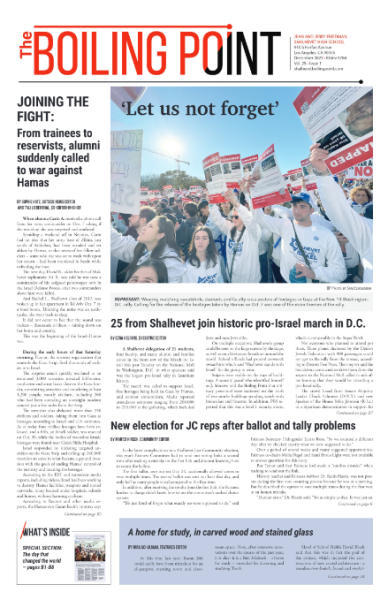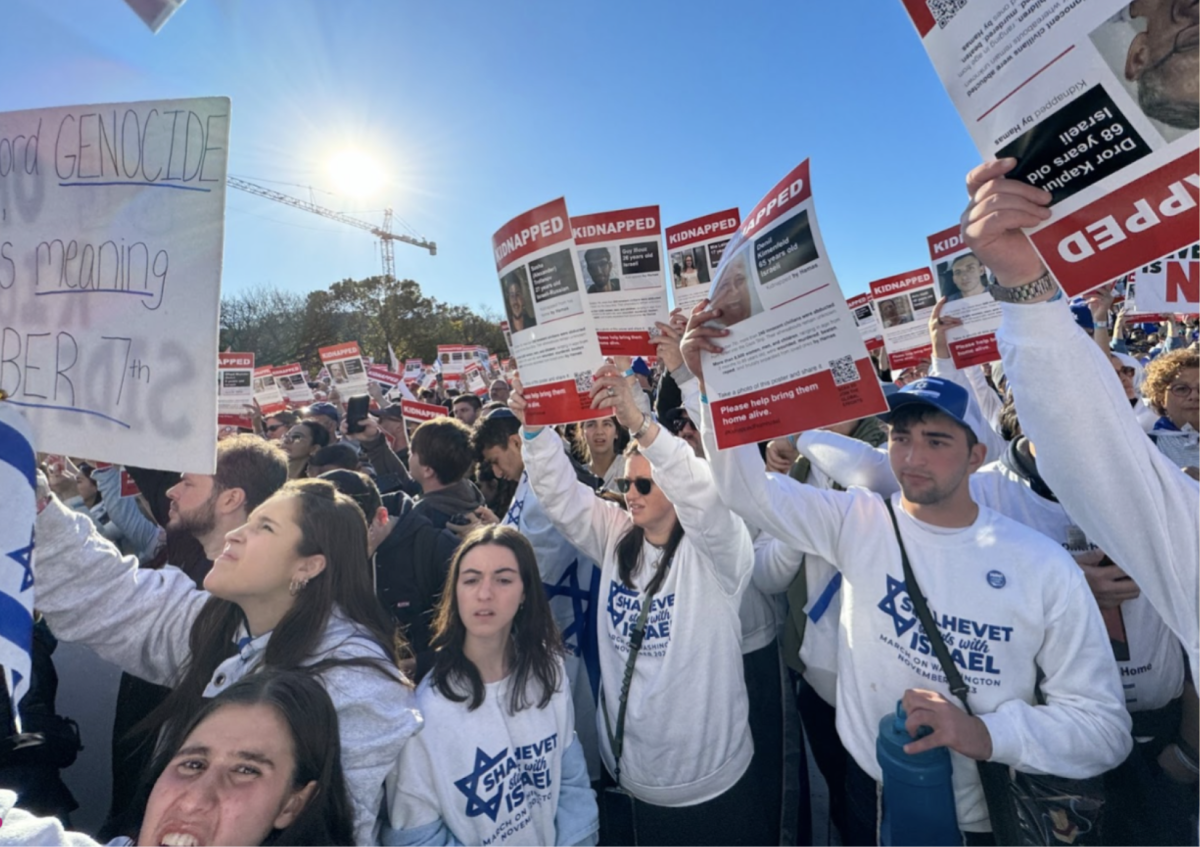Looking ahead toward a possible UN vote declaring a Palestinian state, more than 100 Shalhevet students crowded the foyer at lunch Sept. 20 to send pre-written letters by e-mails to U.S. senators and congressmen. The letters urged office holders to speak out on the House and Senate floor against the Palestinian statehood efforts in the United Nations. “It is important that we send these letters,” Talia Rotenberg, co-chair of the Israel Action Committee said. “Talking about the issues pertaining to Israel is important, but putting our discussions into action is even better.” Shalhevet sent emails through AIPAC, the American Israel Public Affairs Committee, which provided the words. Through the AIPAC website, students signed their names on a letter that would be e-mailed to their elected representatives in Congress. http://tinyurl.com/AIPAC-letter Mr. Aaron Keigher, Director of Development, organized the event, arranging what he called an “Israel activism center’ where students and faculty would have easy access to the website during lunch and free periods throughout the day. “The Israel Action Committee didn’t even know this event was a possibility,” said IAC co-chair Josh Meisel. “I think it is great Mr. Keigher took the initiative, and I hope we can create more events together.” The letter students signed stated that the Palestinian effort at the United Nations posed a threat to U. S. interests and would not further the Middle East peace process. “Palestinian actions at the United Nations could increase the potential for violence by raising unrealistic expectations,” the letter stated. Asked why everyone sent the same text, Josh Meisel said it wasn’t worth it to draft individual letters because they wouldn’t be read in any case. “It is a rarity that a politician will read the letters and emails that he or she is sent,” Josh said. Most of the Shalhevet e-mails were sent to Congressman Henry Waxman, a Democrat who represents California’s 30th district, where Shalhevet is located. Karen Lightfoot, Rep. Waxman’s Communications Director, said someone in the office would read all the letters, but not necessarily the congressman himself. “Congressman Waxman’s office reads all letter, faxes, and emails he receives from constituents,” Ms. Lightfoot said in an interview. “[He] does take into account the views of his constituents before casting his votes on legislation.” “On an issue like this one, where he and his constituents are already in strong agreement, the messages he receives reaffirms the strong connection they all have in their commitment to Israel,” she added. Students who participated said they were happy to have help becoming involved in the process. “This was the first time I ever did something like this,” said junior Neda Kerendian. “I am happy the school organized it so that I could sign the letter. I wouldn’t have done it on my own.”


















